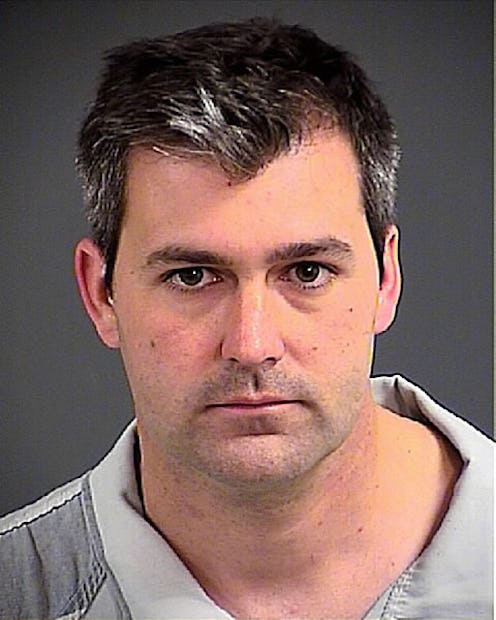News
Could Michael Slager Face The Death Penalty?
Back in April, the New York Times released a disturbing eyewitness video of the shooting death of Walter Scott at the hands of police officer Michael Slager. The video revealed a tussle over Slager's Taser, followed by Scott running away from Slager and the officer repeatedly shooting at the unarmed black man; several shots struck Scott in the back, and he died at the scene. Now that Slager has been indicted on charges of murder by a grand jury, could Slager face the death penalty if found guilty of the charge?
Both the execution process and the act of sentencing a person to death have been in the spotlight recently, due to an overwhelming shortage of execution drugs that have left states grappling on how to appropriately execute a death row inmate. The drawn-out and seemingly painful execution of Clayton Lockett last year, for example, was called "deeply disturbing" by President Obama, and in April Utah brought back the firing squad, should death row inmates choose to die that way. Last month, Boston bomber Dzhokhar Tsarnaev was sentenced to death for his role in the events, which left four dead and hundreds injured.
But Michael Slager will not face the fate that Tsarnaev, pending appeal, likely will; shortly after Slager was charged, the South Carolina prosecutor's office announced that it would not seek the death penalty for Slager. In a statement, prosecutor Scarlett Wilson said:
Based on the facts revealed thus far, it does not appear South Carolina's death penalty provision applies in this case because there are no statutory “aggravating circumstances” present.
Every state has a different legal definition of what "aggravating factors" must be present to sentence a person to death, but those factors must be met for a person to be executed. South Carolina has 12 possible aggravating factors, but unless the South Carolina prosecutor's office decides before the trial that Slager is guilty of one or more of them, Slager could not be execution. In South Carolina, being guilty of murder carries a minimum sentence of 30 years behind bars.
